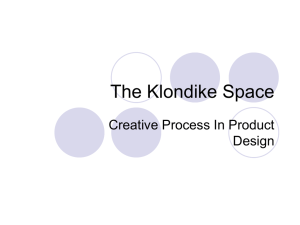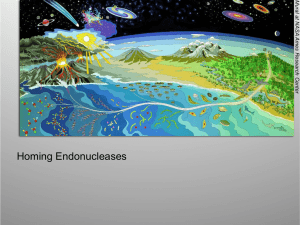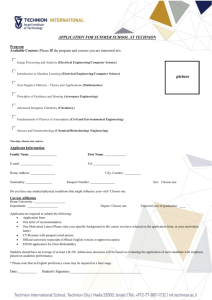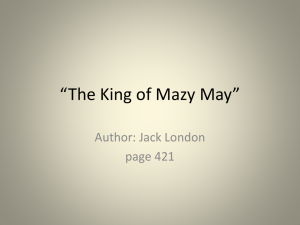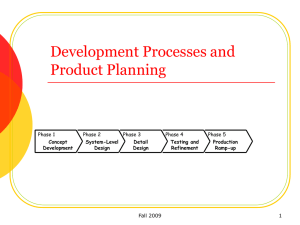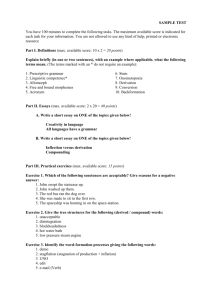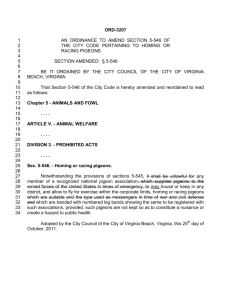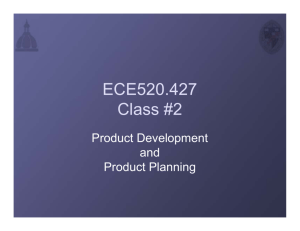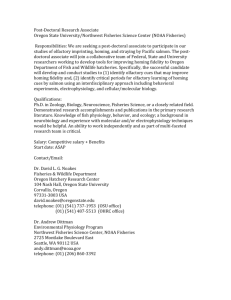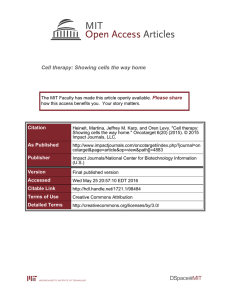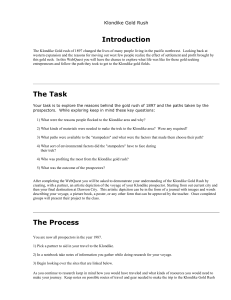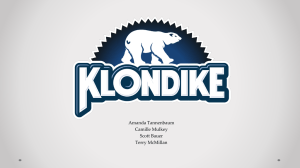The Product Design Process
advertisement
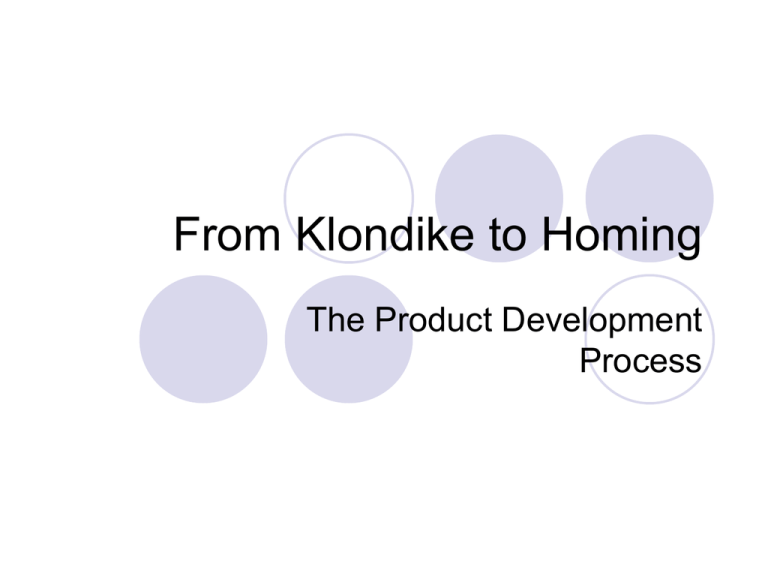
From Klondike to Homing The Product Development Process Project Management Process Project Preparation Project Planning Project Execution Project Adaptation Generic Product Design Process Research Think Good Not good What do you think about the above process? Winning Strategies in Klondike Game Genuine random digging to overcome rarity problem Accurate judgment, shift from wandering to homing at the right moment Give-up homing if necessary Is there a 1:X near/far digging contrast in real life? Two Kinds of Design Exploration Klondike search Unplanned, somewhat random search for solution, one know only what to look for but not where to look Homing search Planned, step-by-step search for solution, optimisation ‘Design-like’ Klondike Search Behaviors Rarity problem – day dreaming, brainstorming, visual thinking, free association, TRIZ, etc. Isolation problem – asking irrelevant questions Oasis and plateau problem – spending less than necessary time on ‘decent investigation’ Oasis and plateau problem – dropping the plan at hand and jump to something silly ‘Design-like’ Homing Search Behaviors Physical qualities – Computer simulation and virtual prototyping Tacit qualities – Physical prototyping, userinterface prototyping Complex interactions – Sensitive analysis, FMEA, QFD, etc. Design Project Execution Klondike search Homing search More often at the beginning of the project More often at the end of the project Framing of problem, idea generation, proposal formation Design development, engineering development, optimisation Enhance good proposal and Huge impact on overall result salvage mediocre proposal Rough and dirty modelling Accurate CAD and prototyping Discussion Do you think product design is a two-step process (Klondike and homing), or it has more steps? Research Klondike Homing Nothing Not good Good Generic Staged Product Development Process From Art to Part Knowledge Design & Development Manufacturing Design definition Market information Customer requests Order information Business Operations Physical product Design & Development Concept Development Historical data Business strategy No. of alternatives Planning System-level Design Detail Design Testing & Refinement Production Ramp-up Concept review System spec review Critical design review Time Concept development System-level design Detail design Production ramp-up pp12, Product Design and Development, K Ulrich S. Eppinger The scatter-gather methodology Towards the early stage Towards the final stage Selection process Quick and imprecise Lengthy and accurate No. of alternatives Many Few No. of short-listed alternatives One or more One Scope of alternatives Abstract and holistic Specific and physical 10 tasks in SD2454 1. Write design brief 2. Identify stakeholders and investigation 3. Initial design ideas and developments 4. Finalize the idea 5. Engineering design 6. Preparation of 3D solid model 7. Preparation of detailed working drawings 8. Design for manufacture and assembly 9. Design for environment 10. Final design Which is which? Design & Development Planning Concept Development Historical data Business strategy Initial research Concept generation System-level Design Design evaluation & development Detail Design Information analysis Return brief Testing & Refinement Production Ramp-up Final Design Analysis presentation consolidation visualisation Information analysis Analysis visualisation Concept generation Final presentation Design & Development Planning Concept Development System-level Design Historical data Business strategy Design evaluation & development Initial research Return brief Detail Design Design consolidation Testing & Refinement Production Ramp-up
